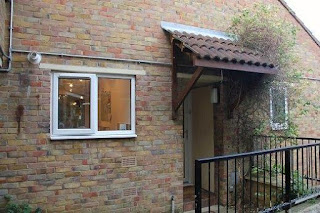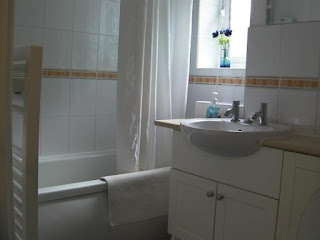A lot of people are playing this game at the moment. Maybe the relocation of the university to the town centre is a factor - maybe the increased cost of housing is causing people to look at HMO as one way to maintain their return on investment. But one thing is certain - compared to 5 years ago far more people who approach me wanting buy to let advice already have the idea of HMO in their head. In many way's it's the new norm in terms of letting properties.
What is a HMO?
A HMO is a house in multiple occupation. So instead of letting a three bed house to a group of friends on a single tenancy agreement for, say, £800 per month - you let it out room by room at £450 per room - with each person on their own tenancy agreement. And what's more you cut the living room in half creating a 4th bedroom, so your £800 per month becomes £1800 per month. What could possibly go wrong?
What could go wrong?
Well half a dozen things actually! Not least the fact that so many people are after a slice of the action that supply is far exceeding demand. A look at Rightmove will verify this - a good percentage of the 500 or so properties available to rent in Northampton are rooms as opposed to whole houses - and they are either hanging around or being reduced in price. If you're a tenant looking to rent somewhere like this, you have a lot of choice.
Then there's the Council. Conscious that an increasing number of properties are being cut into rooms, the Council are all over this issue. That in itself probably isn't a bad thing as it maintains standards but their obsession with treating every landlord as a pariah doesn't really do their own reputation any favours. Irrespective - create a HMO and you're entering a heavily regulated area of lettings so you're far more likely to come up against the Council who may want you to pay for a license, and may want expensive works done to the property before they'll give you one.
Operational issues need considering too. HMOs are furnished so your start up costs are higher. Your running costs will be higher too - you're paying bills so your tenants won't be too careful when it comes to conserving energy. And when something gets broken in a communal area you'll be footing the bill unless you can establish which tenant caused the issue - less easy when they are all on individual tenancy agreements. You're also sticking 4 people who don't know each other in a confined space, so there's increased potential for squabbles and disagreements that need resolving - the simple way to deal with this is to employ an agent to deal with the hassle for you, but whilst some of us do manage HMOs on a selective basis, you'll find the main HMO agents in town perhaps aren't the best agents in town!
Who's winning at this game?
Well it'd definitely not those who buy up a three bed house, turn it into a 4, stick in some old furniture that's been in their garage for the last 10 years, and start charging rent. See above - a lot of empty rooms in this town currently. But some landlords do very well out of running HMOs and they tend to fall into 2 distinct categories - 'hands on' and 'high end'.
The hands on guys have been doing this for years - their properties are their occupation and they invest as much time as required in the day to day running. They collect the rent (usually in person), attend to maintenance issues, and generally maintain standards. They are comfortable managing properties and people, and their tenants are used to being actively managed so fewer issues develop as a result.
The high end guys invest more heavily in their properties before they start renting them - nice quality furniture, as many rooms self contained as possible, lots of attention to detail. There's always good demand for nice places so they separate themselves from the competition by going over the top with presentation. Pair that with a good agent (I know one) and you can attract la creme de tenant which limits the amount of hassle you'll get further down the line.
A success story
We had a landlord recently who took a big box in Briar Hill (indifferent area, but lots of square footage) and cut it into 5x high end flatlets (tiny but really well presented and mostly self contained). The Council were involved from day 1 so the whole thing gets their seal of approval. I was cynical (yes, me!) but to be fair we've rented the lot for a total income of over £2500 per month. Yes, the tenants will take the mickey on bills - lets say that costs £500 per month, and yes the set up cost will have been high - but even so I bet the whole project hasn't cost them more than £200k all in. If my figures are right, that's a return of around 12% after bills which isn't shabby to say the least. Replicating a model like this is probably the safest way to approach HMO if it's a path you're determined to take.


















































